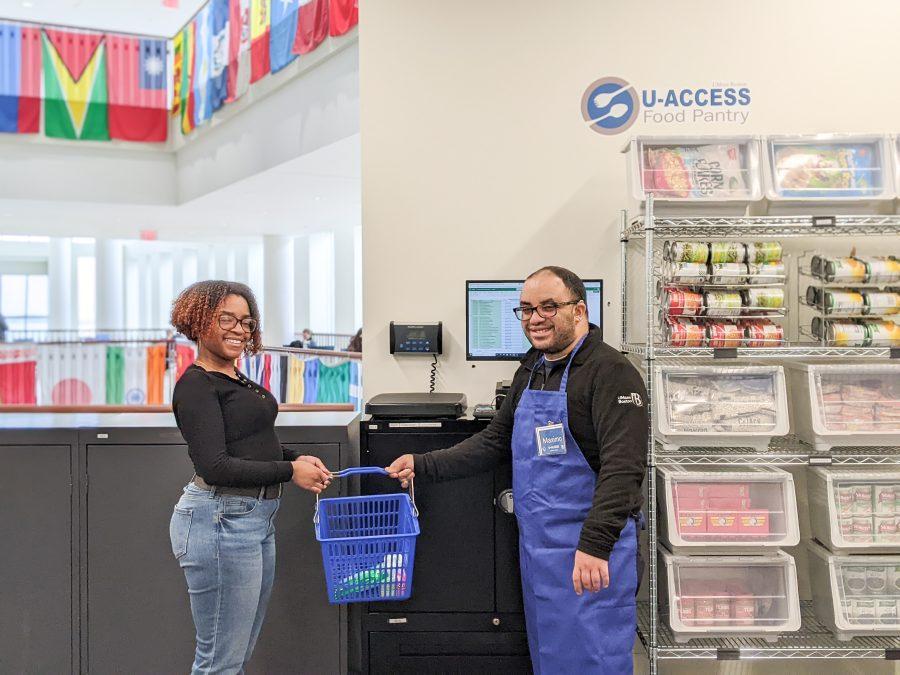U-ACCESS is a student support office at UMass Boston. U-ACCESS provides a range of services, such as meals, snacks, legal consultations, free on-campus locker rental, Supplemental Nutrition Assistance Program application assistance, housing resources, and financial counseling for people who cannot afford them. The U-ACCESS food pantry initially started in February 2013 to provide emergency grocery items. Now they offer complete pantry services from Tuesday through Thursday with an elaborate list of goods, including essential food items—milk, pulses, rice, cereals, pasta, oatmeal and fresh produce—as well as toiletries, hygiene products and daily supplies for students. It is helpful to note that the food pantry is closed on Mondays.
Additionally, U-ACCESS was established to help students overcome various non-academic challenges that they may encounter on a daily basis. U-ACCESS envisions “a campus where students are empowered to effectively engage in the fight against the systems of poverty, pursue economic security and successfully achieve their academic goals at UMass Boston.”
Food is a fundamental necessity for anyone. U-ACCESS provides breakfast from Dunkin’ every day except Mondays, lunch, such as a caesar wrap on Wednesdays, and pizzas every Thursday. U-ACCESS partners with organizations such as Sodexo, The Campus Kitchen at UMass Boston, The Greater Boston Foodbank and Whole Foods Market to provide food to students in need.
The only requirement to receive the benefits from U-ACCESS is to be a UMass Boston student enrolled in at least one credit. As of Feb. 9, U-ACCESS has helped around 879 students this Spring Semester. Anyone undergoing food insecurity, housing difficulties or financial problems can visit U-ACCESS and seek assistance at the office.
With increasing living costs and rising inflation, many students have been forced to choose between buying food or paying tuition fees, parking fees or other bills. According to the Hope Lab study conducted in 2020, 40 percent of students at UMass have food insecurities. With the increasing number of students seeking support, U-ACCESS strives to match the demand and supply constraints. U-ACCESS accepts donations from the students, staff and community. They take a wide range of donations such as school supplies, food items, meal swipes and even cash that will support UMass Boston students in need.
One of the noble initiatives by U-ACCESS is the emergency supplies lockers installed at multiple locations all over the UMass Boston campus. Some of them are located on the second floor of the Quinn Administration building and the third floor of McCormack. Any student who needs supplies can quickly reach a nearby locker and take the items they require instead of going all the way to the U-ACCESS office.
Dr. Mariette Ayala, Program director of U-ACCESS, said, “in our goal to grow clients and services at U-Access, we started off the academic year by doing 78 class presentations and over a dozen new undergraduate and graduate student orientations. This caused the academic year to start with an uptick in student clients.”
A student who benefited from U-ACCESS commented, “U-Access is an excellent university-led initiative that is not only helping me but thousands of other students on campus. Being an international student from a country with a rapidly declining economy, living in the United States was getting more expensive daily due to the increasing exchange rates. But with the help of U-Access, I don’t need to worry that much about my food and other supplies and focus more easily on my studies.”
Sources:
1. U- ACCESS website
2. Program Director statement
3. [waiting for a source link for Hope Lab Study Data ]





















































